Bell pepper - benefits of the product
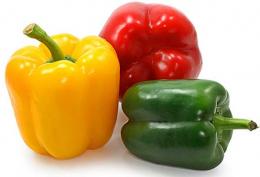
The mistress of any home, who knows how to cook delicious gourmet dishes, knows exactly what products she cannot do without. These include: onions, without which probably only sadkoe for dessert cannot be prepared, potatoes, which even in the singular serve as an independent dish and, of course, bell peppers with all its vitamins and minerals. Food, in addition to everyday food, can also be festive. Especially on the eve of the New Year, Christmas or Birthday, housewives enthusiastically prepare for the holiday and compose a full menu for the festive table.
Meat and poultry occupy a dominant place on the table. Only vegetarian holidays do without meat dishes. Baked duck with apples, jellied meat, shish kebab, lula kebab and many other dishes serve as the main treats. With them, gourmets eat vegetables with the same appetite. Baked potatoes, deep-fried mushrooms, fresh cuts, various pickles and grilled vegetables certainly go well with meat dishes.
One of the most interesting tasting vegetables is bell pepper. It can be consumed raw, baked, fried and boiled. Pepper has an excellent taste even after cooking it on the grill or grill. The appetizing streaks from the grill and the magical aroma make guests anticipate the taste of the first bite.
Content:
- Some facts about bell pepper
- Bell pepper in cooking
- Bell pepper contender for the Guinness Book of Records
Some facts about bell pepper
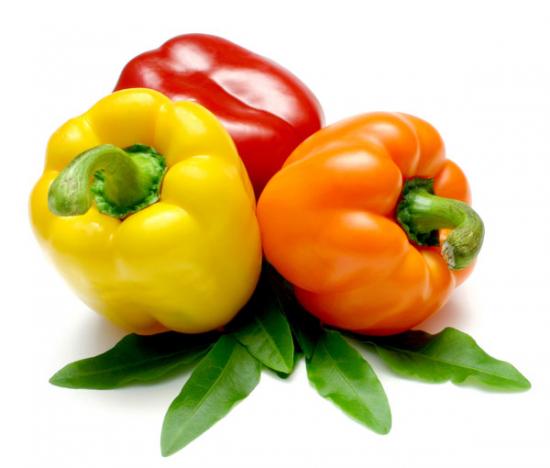
Homeland bell pepper is America.In the USA it grows on small bushes that do not need to be planted every year. They don't even require special care. In other words, it is considered to be a weed or a false berry. In our country, this is a very common vegetable, differing both in color, from yellow to brown, and in size and shape.
No one knows why the pepper is called Bulgarian. But the main thing about it is not the name, but the enormous benefits for the human body. Bell pepper occupies a leading position in vitamin C content, even surpassing lemon and black currant. It also contains provitamin A or carotene, as it is also called, vitamin P and a group of B vitamins.
Bell peppers are rich in minerals. These include:
- Potassium
- Sodium
- Phosphorus
- Iron
- Zinc
- Calcium
- Magnesium
- Iodine
Thanks to the alkaloid capsaicin, pepper is good for the stomach. The rich composition of vitamins helps strengthen blood vessels, improves the growth and strength of hair and nails, and also affects the appearance of the skin and maintains good vision for a long time. Minerals help prevent diseases such as anemia, depression, and loss of strength. Enrich the composition of the blood, increase the immune properties of the body.
This vegetable is useful for people with diabetes. It lowers blood pressure by thinning the blood. Ointments and masks, which consist of bell pepper powder, relieve arthritis, radiculitis and various types of neuralgia. Vitamin P (rutin) helps maintain the youth of capillaries and blood vessels, making them more elastic and strong, thereby fighting diseases such as atherosclerosis and thrombosis. The beneficial properties of bell pepper help with insomnia and relieve stress, which makes it indispensable for older people and people of mental work.
Bell pepper is especially valuable for men, as it prevents the early appearance of baldness. It is also useful for pregnant women due to its high calcium content, which prevents the destruction of the skeletal system, teeth and hair.
The highest concentration of nutrients is found in the white pulp, seeds and stalk, i.e. those parts of the bell pepper that we throw away. Therefore, doctors recommend preparing freshly squeezed vegetable juices, consuming the whole pepper. 40-45 g of this juice allows you to get a daily dose of vitamin C. However, heat-treated bell peppers lose up to 72% of their beneficial substances.
Despite such great benefits, there are diseases for which it is better not to consume pepper in large quantities or even exclude it from your diet. These include ulcers, hypertension, gastritis with high acidity, coronary heart disease, as well as liver and kidney disease. This is due to the high content of essential oils and fiber in the vegetable.
Bell pepper in cooking
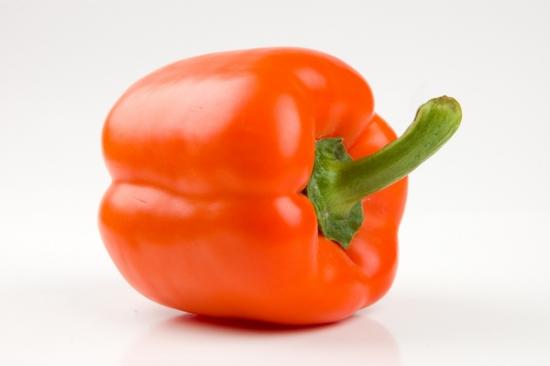
bell pepper - A widely used vegetable in culinary matters. There are many dishes and different ways of preparing them that are loved and in demand by many:
- Raw bell peppers serve as an excellent appetizer for meals. Together with tomatoes, cucumbers, radishes and herbs, it will add freshness to the dinner table.
- After processing, bell peppers are suitable for first and main courses. For hot soups it is used as a roast, for a side dish in the form of a grilled vegetable, for the main dish the pepper can be stuffed with meat.
- Bell peppers in the form of pickles are relevant in winter. It can be preserved both whole and in pieces for lecho.In winter, when there are so few fresh vegetables, it’s nice to get canned peppers in oil from the cellar and add them to your evening meal.
There are more than a hundred known varieties of sweet peppers. The most common of them are:
- Bagration. Yellow greenhouse fruits weighing 150-200 grams.
- Agapovsky. Early ripe red fruit weighing 114-120 grams.
- Belladonna. Mid-early red fruit weighing 75-100 grams.
- Pomegranate. The pod-shaped fruits are first green, then red, weighing 25-35 grams.
- Yellow bell. A universal early ripening yellow fruit weighing 120-150 grams.
- Arrogant. Dense, heavy red fruits weighing 160-260 grams.
- Bell. Semi-sharp crimson fruit weighing 60-100 grams.
- Latino. Early ripe bright red fruit weighing 180-200 grams.
- Gift of the Caspian Sea. Mid-ripening red fruit weighing 84-113 grams.
Bell pepper contender for the Guinness Book of Records
Glory bell pepper flew around the world. Despite the unstable political situation in Israel, the farmers of Ein Yahav reported their success to the Guinness Book of Records.
They managed to grow the largest bell pepper in the world, which weighed 0.5 kg. Residents of a small town have already come up with a humorous nickname for the vegetable. Now the bell pepper is called “Godzilla”. The local farmers have once again proven that the agricultural industry can work wonders in closed soil conditions.
Bell peppers have more than enough possibilities. From the fact that it has an interesting taste to its enormous medicinal benefits, bell peppers should not be easily consumed, but done daily. You will improve your health, nourish your body with vitamins and minerals, and get a lot of positive taste sensations.In general, bell pepper is an indispensable product in the life of every adult and child.
Video about the benefits of bell pepper:
Interesting information about the vegetable garden

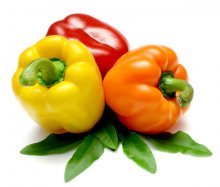
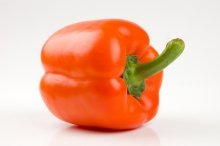
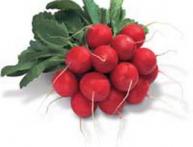
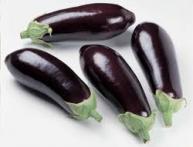
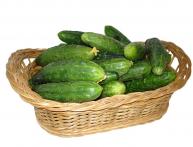





Comments
We add bell peppers to almost all dishes and freeze them for the winter. When grown, only a small amount turns red on the bush, the rest I put in a box, where they turn red.
But I like the red meaty one better. If you dry it and then grind it, you get a very good seasoning. Moreover, all vitamins are preserved.
I have always loved bell peppers in any form. Now I have learned a lot about its beneficial properties. Thank you for the article.
It turns out that the most common varieties of peppers are red, but I thought they were green, as champions in vitamin C content.